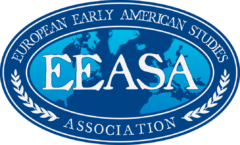Lublin 2014

Protest and Persuasion: Writing, Print, Speech, and Performance in Early America and the Atlantic World
December 11-13, 2014, Maria Curie-Skłodowska University (UMCS), Lublin, Poland
Persuasive communication has been at the heart of much of Western social and political development. It played a crucial role in the early promotion of colonization, the struggle for independence, the campaigns for the recognition of independence by European powers, the making of the constitutions, the laying foundations of the new states, justifying or repudiating slavery, and building and manipulating alliances with Native Americans. Several decades of scholarship have elucidated the dynamics of authorship, publishing and reading in the Americas and the Atlantic world as forms of public-relation practice in the pre-mass media world. Meanwhile, numerous studies of public opinion have built upon and responded to Jürgen Habermas’ thesis about the transformation of the public sphere in the eighteenth century. These two strands of scholarship have often intersected, and in both areas scholars have insisted on the need to move beyond the reified notions of “print culture” and the “public sphere” to consider the interaction of oral, scribal, printed and behavioral forms of socially and politically motivated communication.
Keynote lectures:
Alison Games (Georgetown University): “The English and the Dutch in Suriname: Entangled Atlantics in the Seventeenth Century”
Simon Newman (Glasgow University): “Runaways: Redefining Slavery in the British Atlantic World”
